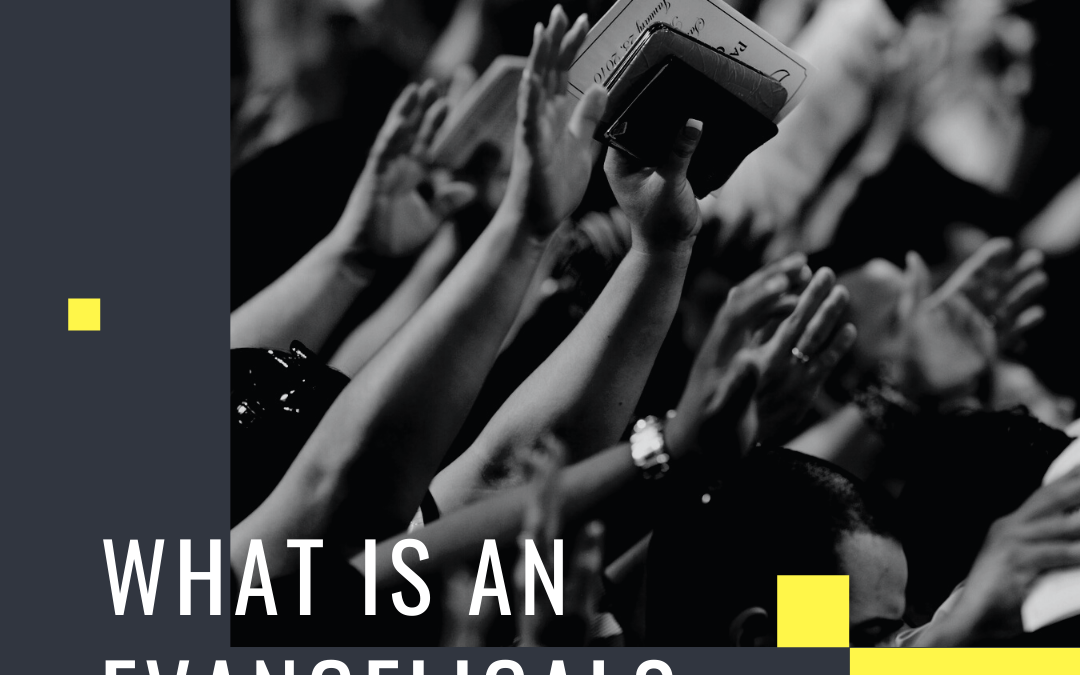
by Chris Staron | Aug 30, 2022 | Episodes
A socialist bestseller that got everything wrong
Now that we’ve read In His Steps together and discussed it, let’s talk about another work of fiction. Looking Backward was written by Edward Bellamy. That name may sound familiar! We talked about his cousin Frances Bellamy in the episode about the Pledge of Allegiance. Frances was a Christian socialist. Edward wrote his famous book looking forward to the year 2000. He predicted that the United States would be a socialist paradise. People would work hard, retire early, and equality would reign.
None of that came true.
We’re talking about it today in order to understand the zeitgeist in the late 1800s. This book sold over half a million copies in its first few years of publication. It is now over a million copies. That doesn’t happen without stirring something in society. As we’ll see, socialism was tied to the Social Gospel. The opposition to the Social Gospel is what would go on to create the Christian fundamentalist movement.
Helpful Links:
Discussion Questions:
- How have fictional books you’ve read impacted your worldview?
- What do you think about Bellamy’s predictions?
- How does the fear of socialism and communism impact evangelicalism?
- What real threats were facing evangelicalism in the 1800s? How about now?

by Chris Staron | Aug 2, 2022 | Episodes
In His Steps free audiobook
This is part 3 of an audiobook presented on Truce. Please start at part 1!
Become a patron of the show to keep more content like this coming your way!
In His Steps by Charles Sheldon is a classic of Christian fiction. It is also one of the top-selling Christian books of all time. We’ve been running through the history of Christian fundamentalism this season. It’s worth noting that fundamentalism was a reaction to liberal theology, especially modernism. Another form of liberal theology was the “Social Gospel”. It was a movement led by people like Walter Rauschenbusch that emphasized the socially conscious aspects of Christianity, while simultaneously downplaying evangelism.
Christian fundamentalists did not like the Social Gospel. For one thing, it had a positive view of human progress. It said that the world could get better and better and then Jesus would return. Christian fundamentalists generally think that world history trends downward.
I’m presenting this original audio recording for many reasons. I think this book offers a great window into the era in which it was created (the late 1800s). It also represents the Social Gospel and a slice of the Holiness movement quite well. Finally, I think we need to hear this story in our modern context. Modern Christian churches are divided. What would happen if we dared to ask “What Would Jesus Do?”
Things to track as you listen:
- The role of women in this society
- Wealthy attitudes toward the poor
- The genesis of financial woes in this book is sometimes economic crisis (the late 1800s was full of panics and recessions) and sometimes sin based
- The Holiness movement and those who object to it
- Is this book evangelistic? If so, how is the gospel presented? If not, what does this book leave out?
- The overall positive view of human progress
- Social movements like the pure foods movement, temperance, suffrage, anti-gambling

by Chris Staron | May 10, 2022 | Episodes
Give to help Truce. www.trucepodcast.com/donate
William Jennings Bryan was a Populist
Populism is a tricky subject. We use it these days as a slur, but populism can be a useful phenomenon. History professor and author Michael Kazin says that populism is an important tool when it comes to regulating power. In the late 1800s, railroads and banks were out of control. Industrialists like John D. Rockefeller had uninhibited control of their markets. Rockefeller believed in social Darwinism and didn’t mind using dirty tactics to undermine his competition.
The origins of the Populist Party
The Populist Party sprouted out of frustrations women had with the political machines of their day. Republicans and Democrats were not yet willing to accept women and the issues they cared about. Women were slowly becoming a force within politics, but neither party had the guts to accept them. So women and others decided to form their own party. But in the election of 1896, the Populist Party was worried about a split vote. They worried that if they were to run a candidate of their own then they might split the vote. So the Populist Party backed Democratic nominee William Jennings Bryan.
Bryan was a man of God. He quoted the Bible extensively, talked about the example of Jesus. But he was soundly defeated by the Republicans and William McKinley. He had only about 4% of the budget of his opponents. The story of Bryan is an interesting one because it contains the building blocks of fundamentalism.
Discussion Questions:
- What is a populist?
- Can you name some populists?
- What are the advantages of populism? The drawbacks?
- How are Donald Trump, Elizabeth Warren, and Bernie Sanders similar?
- William Jennings Bryan was one of the first presidential hopefuls from a major party to tour the country. How has this shaped American politics? Why do we like to see politicians in our home states?
- What do populism and fundamentalism have in common?
- Do you think that fundamentalism relies on strong figures as populism does? Why or why not?
Helpful Resources:
- “A Godly Hero” and “What It Took to Win” by Michael Kazin
- Library of Congress collection of Chautauqua materials
- Bernie Sanders Clip from C-SPAN
- Elizabeth Warren Clip from C-SPAN
- Donald Trump clip from C-SPAN
- Article about Mary Lease
- “These Truths” by Jill Lepore
- Library of Congress collection of McKinley/Bryan campaign materials. It’s worth searching the site in general for images from both of them.

by Chris Staron | Mar 29, 2022 | Episodes
The Birth of Liberal Modernist Theology
George Marsden characterized Christian fundamentalism as “militantly anti-modernist protestant evangelicalism”. Right there you see that fundamentalism is a reaction against something. And that something is modernist theology. Modernism is a broad term used to describe a few different schools of liberal theology. In this episode, we discuss the Tubingen and Berlin schools.
Modernist theology is often marked by the desire to discuss the “historic Jesus”. This term can be a bit confusing because it is less about understanding what historic texts say about Jesus and more about discussing the non-miraculous aspects of Jesus’ life and ministry.
Our special guest this episode is Chris Evans, professor of Christian History and Methodist Studies at Boston University and author of “Do Everything” a biography of Francis Willard.
Discussion Questions:
- What does it mean that fundamentalism is a reaction to modernist theology?
- What is modernist theology?
- Do you know any theologically liberal people?
- Do you find it difficult to both love the Lord and love your neighbor?
- What makes someone a Christian? Does your view include theologically conservative people? What about theologically liberal people? Where is the line for you?
- How vital are Jesus’ miracles to your life and faith?
- Is there a tension in Christianity where it is culturally difficult to be theologically conservative and still want to love our neighbors?
Helpful Links and Sources:

by Chris Staron | Feb 1, 2022 | Episodes
Donate to support the Truce Podcast!
Who is an evangelical?
Who is an evangelical? If you go by the news today, you probably think evangelicals are all American middle-class white men. Nope! Evangelical Christians come in all shapes, colors, and sizes. They can be men or women from anywhere in the world. They can speak any language. And they can have a lot of variety in their beliefs.
This season on the Truce Podcast we are examining the history of Christian fundamentalism. How did fundamentalism begin? What is Christian fundamentalism? Is Christian fundamentalism a good thing, a bad thing, or somewhere in between?
In this episode, we’re joined by author and professor George Marsden. He’s the author of Fundamentalism and American Culture, which is THE book everyone else refers to when they talk about fundamentalism. According to Marsden, fundamentalism is “militantly anti-modernism protestant evangelicalism”. That is a lot of big words! By the end of the season, you should understand all of that. One important part of that definition is the word “evangelicalism”. It is one of those words that has been used so much in so many different ways that it can be difficult to define it. There are whole movements to create new definitions these days. But in order to move forward this season, we need to pick some frame of reference. I chose David Beggington’s definition of what defines an evangelical:
Bebbington’s Quadrilateral
- Biblicism (a focus on the Bible)
- Conversionism (an emphasis on evangelism)
- Crucicentrism (the centrality of the cross)
- Activism
Those four things, according to Bebbington, are what make up an evangelical. Again, it is a hotly debated subject.
So when did evangelicalism begin? Many of the sources that I found pointed to the revivals in the decades leading up to the American Revolution. Evangelists like Jonathan Edwards and George Whitefield spread the gospel using a post-millennialist vision of the end times mixed with Calvinism. This was part of the First Great Awakening. Then there were others after the revolution who spread an Arminian view of salvation. Guys like Finney. Belief in God became more personal, without the direct oversight of a priest or minister. It became an individual’s responsibility to look after their spiritual growth.
Welcome to season 5! God willing, I’ll be releasing new episodes every other week.
Discussion Questions:
- What is an evangelical?
- What is a fundamentalist?
- If fundamentalists are evangelicals who are angry at something, what are they angry at? Are you one of those people?
- Do you believe in the Calvinist view of salvation or the Arminian one? Does it matter? Why?
- The Great Awakening movements established a sense that belief in God was not something that needed to be handed down by a priest or minister. Do you think that was a positive move? What are some potential drawbacks (if any)?
Helpful Links and Sources:
Correction: The original version of this episode incorrectly represented Arminian belief. It involves the belief that once grace is offered by God that a sinner can reject the offer. The original version stated that the sinner made the first move to initiate a relationship. That is incorrect. Arminians believe that God makes the first move, but His offer can be rejected. The error has been corrected in this version, My apologies for any confusion.





